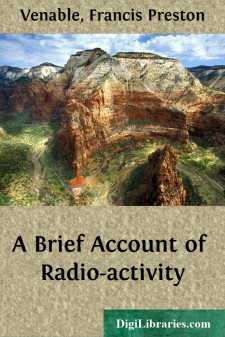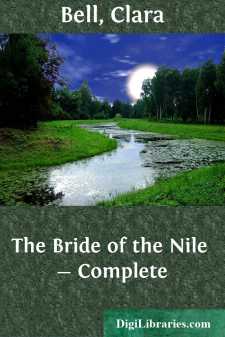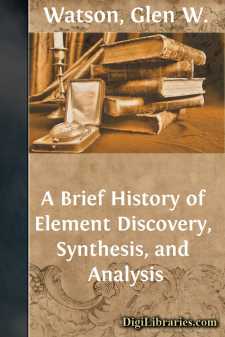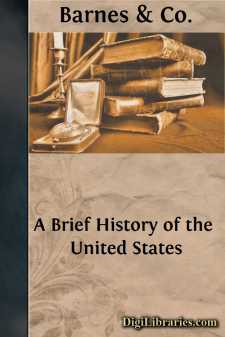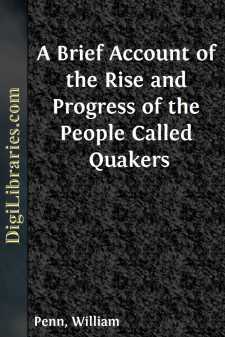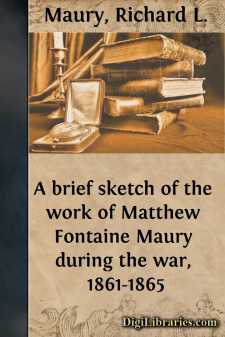Categories
- Antiques & Collectibles 13
- Architecture 36
- Art 48
- Bibles 22
- Biography & Autobiography 813
- Body, Mind & Spirit 142
- Business & Economics 28
- Children's Books 15
- Children's Fiction 12
- Computers 4
- Cooking 94
- Crafts & Hobbies 4
- Drama 346
- Education 46
- Family & Relationships 57
- Fiction 11828
- Games 19
- Gardening 17
- Health & Fitness 34
- History 1377
- House & Home 1
- Humor 147
- Juvenile Fiction 1873
- Juvenile Nonfiction 202
- Language Arts & Disciplines 88
- Law 16
- Literary Collections 686
- Literary Criticism 179
- Mathematics 13
- Medical 41
- Music 40
- Nature 179
- Non-Classifiable 1768
- Performing Arts 7
- Periodicals 1453
- Philosophy 64
- Photography 2
- Poetry 896
- Political Science 203
- Psychology 42
- Reference 154
- Religion 513
- Science 126
- Self-Help 84
- Social Science 81
- Sports & Recreation 34
- Study Aids 3
- Technology & Engineering 59
- Transportation 23
- Travel 463
- True Crime 29
Sort by:
CHAPTER I DISCOVERY OF RADIO-ACTIVITY The object of this brief treatise is to give a simple account of the development of our knowledge of radio-activity and its bearing on chemical and physical science. Mathematical processes will be omitted, as it is sufficient to give the assured results from calculations which are likely to be beyond the training of the reader. Experimental evidence will be given...
more...
SCENE A Lady, entering the florist's with her muff to her face, and fluttering gayly up to the counter, where the florist stands folding a mass of loose flowers in a roll of cotton batting: "Good-morning, Mr. Eichenlaub! Ah, put plenty of cotton round the poor things, if you don't want them frozen stiff! You have no idea what a day it is, here in your little tropic." She takes away...
more...
by:
Clara Bell
CHAPTER I. Half a lustrum had elapsed since Egypt had become subject to the youthful power of the Arabs, which had risen with such unexampled vigor and rapidity. It had fallen an easy prey, cheaply bought, into the hands of a small, well-captained troop of Moslem warriors; and the fair province, which so lately had been a jewel of the Byzantine Empire and the most faithful foster-mother to...
more...
by:
Glen W. Watson
It is well known that the number of elements has grown from four in the days of the Greeks to 103 at present, but the change in methods needed for their discovery is not so well known. Up until 1939, only 88 naturally occurring elements had been discovered. It took a dramatic modern technique (based on Ernest O. Lawrence's Nobel-prize-winning atom smasher, the cyclotron) to synthesize the most...
more...
by:
Barnes & Co.
EARLY DISCOVERIES AND SETTLEMENTS. [Illustration: BALBOA.] GEOGRAPHICAL KNOWLEDGE IN THE FIFTEENTH CENTURY.—The people of Europe had then never heard of America. About that time, a great desire for geographical knowledge was awakened. The compass and the astrolabe—an instrument for reckoning latitude—had been already invented. Voyagers were no longer compelled to creep along the shore, but began...
more...
by:
William Penn
CHAP. I. Containing a brief account of divers dispensations of God in the world, to the time he was pleased to raise this despised people, called Quakers. Divers have been the dispensations of God since the creation of the world, unto the sons of men; but the great end of all of them, has been the renown of his own excellent name in the creation and restoration of man: man, the emblem of himself, as a...
more...
by:
Samuel Maverick
The Committee on English Research of the New England Historic Genealogical Society called attention in their last annual report to the fact that there were in England many important documents relating to the American colonies, as well as manuscript maps hitherto unknown to historical investigators. They urged upon the society the desirability of having exact copies of them made now while we have in Mr....
more...
by:
Richard L. Maury
TORPEDOES Torpedoes as effective weapons in actual war were first utilized by the Confederate navy, and Captain Matthew F. Maury introduced them into that service, and continually improved and perfected their use until they had become the mighty engine of modern warfare and revolutionized the art of coast and harbour defense. He, it was, who in 1861 mined James River, who, in person commanded the first...
more...
by:
Walter De Maris
DOWN AND OUT "I wonder who will tell her," I heard somebody say, just outside the arbour. The somebody was a woman; and the somebody else who answered was a man. "Glad it won't be me!" he replied, ungrammatically. I didn't know who these somebodies were, and I didn't much care. For the first instant the one thing I did care about was, that they should remain outside my...
more...
by:
Eliza Southall
BRIEF MEMOIR OF ELIZA SOUTHALL. Eliza Southall, wife of William Southall, Jr., of Birmingham, England, and daughter of John and Eliza Allen, was born at Liskeard, on the 9th of 6th month, 1823. As she felt a strong attachment to the scenes of her childhood, and an interest in the people among whom she spent the greater part of her short life,—an attachment which is evinced many times in the course of...
more...


